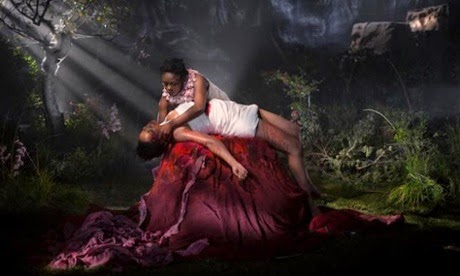We sought to gather a list of African American quotes that inspire and uplift. We hope you enjoy the the quotes and find that it illuminates the strength and beauty that embodies our people.
“Injustice anywhere is a threat to justice everywhere.” – Martin Luther King Jr
“To be a great champion you must believe you are the best. If you’re not, pretend you are.” –Muhammad Ali
“We have to talk about liberating minds as well as liberating society.” - Angela Davis
“In order for us as poor and oppressed people to become part of a society that is meaningful, the system under which we now exist has to be radically changed… It means facing a system that does not lend its self to your needs and devising means by which you change that system.” – Ella Baker
“The thing to do is to get organized; keep separated and you will be exploited, you will be robbed, you will be killed. Get organized and you will compel the world to respect you.” - Marcus Garvey
“To be a Negro in this country and to be relatively conscious is to be in a rage almost all the time.” –James Baldwin
“One had better die fighting against injustice than to die like a dog or a rat in a trap.”- Ida B. Wells
“When I dare to be powerful – to use my strength in the service of my vision, then it becomes less and less important whether I am afraid.” – Audre Lorde
“There is in this world no such force as the force of a person determined to rise. The human soul cannot be permanently chained.”- W.E.B. Dubois
“The moment we choose to love we begin to move against domination, against oppression. The moment we choose to love we begin to move towards freedom, to act in ways that liberate ourselves and others.” - bell hooks
“If we have the courage and tenacity of our forebears, who stood firmly like a rock against the lash of slavery, we shall find a way to do for our day what they did for theirs.” – Mary McLeod Bethune
“If there is no struggle, there is no progress. Those who profess to favor freedom, and deprecate agitation, are men who want crops without plowing up the ground, they want rain without thunder and lightning.” – Frederick Douglass
“The walls, the bars, the guns and the guards can never encircle or hold down the idea of the people.” – Huey P. Newton
“You have to be taught to be second class; you’re not born that way.” – Lena Horne
“Hate is too great a burden to bear. It injures the hater more than it injures the hated.” - Coretta Scott King
“I’m not going to sit at your table and watch you eat, with nothing on my plate, and call myself a diner. Sitting at the table doesn’t make you a diner.” - Malcolm X
“We may encounter many defeats but we must not be defeated.” - Maya Angelou
“We ask for nothing that is not right, and herein lies the great power of our demand.” Paul Robeson
“A violinist had a violin, a painter his palette. All I had was myself. I was the instrument that I must care for.” – Josephine Baker
“Powerful people never educate powerless people in what they need that they can use to take the power away from powerful people; it’s too much to expect. If I was in power, I would not educate people in how to take my powers away.” - Dr. John Henrik Clarke
“Darkness cannot drive out darkness; only light can do that. Hate cannot drive out hate; only love can do that.” - Martin Luther King Jr
“You just need to be a flea against injustice. Enough committed fleas biting strategically can make even the biggest dog uncomfortable and transform even the biggest nation.” - Marian Wright Eldelman
“Those are the same stars, and that is the same moon, that look down upon your brothers and sisters, and which they see as they look up to them, though they are ever so far away from us, and each other.”– Sojourner Truth
“If you stick a knife in my back nine inches and pull it out six inches, there’s no progress. If you pull it all the way out that’s not progress. Progress is healing the wound that the blow made. And they haven’t even pulled the knife out much less heal the wound. They won’t even admit the knife is there.” – Malcolm X
“I did not get on the bus to get arrested I got on the bus to go home.” - Rosa Parks
“Freedom is to come to the Negro, not as a bequest, but as a conquest.” - Carter G. Woodson
“I freed thousands of slaves. I could have freed thousands more if they had known they were slaves.” - Harriet Tubman
“The most common way people give up their power is by thinking they don’t have any.” - Alice Walker
What are your favorites in the list? Do you know of another quote about Blackness that should be included in this collection? Share it in the comments and if it’s worthy, we’ll add it in!


































Follow Us
Don't miss anything Afro related ever again !